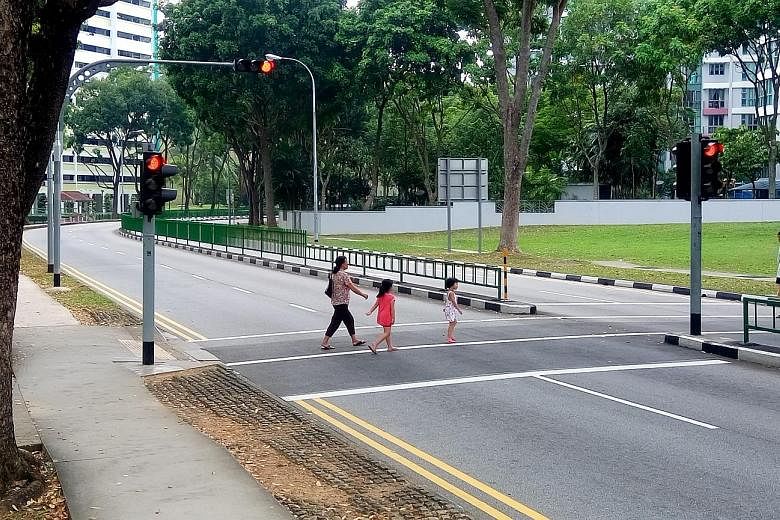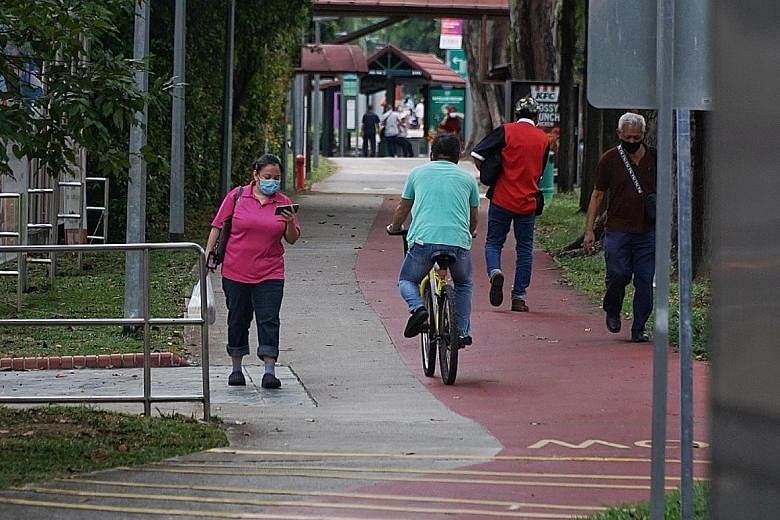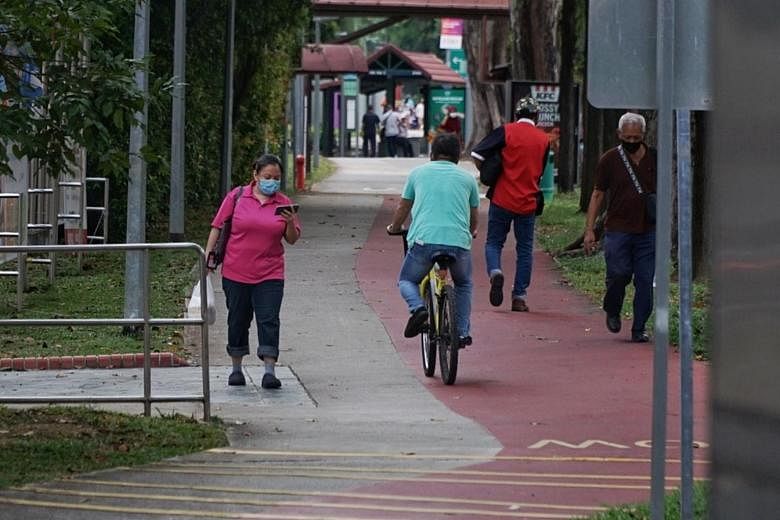- Joined
- Jul 25, 2008
- Messages
- 14,069
- Points
- 113
Lawrence Wong: "It is their shared responsibility to upkeep it and pass on its legacy to future generations."

Visitors enjoying a concert at the Botanic Gardens over the jubilee weekend. Since the Gardens obtained its Unesco World Heritage Site status last month, it has seen a 35 per cent rise in the number of visitors. ST PHOTO: JAMIE KOH, MARK CHEONG

Charissa Yong
US Correspondent
AUG 18, 2015
The number of visitors to the Singapore Botanic Gardens has risen 35 per cent since it was named the country's first Unesco World Heritage Site last month, Minister for Culture, Community and Youth Lawrence Wong told Parliament yesterday.
Therefore, he said, the National Parks Board (NParks) is increasing the number of heritage tours and stepping up public outreach efforts to ensure these visitors are informed about the Gardens' historical significance and rich heritage.
He was answering questions from Mr Baey Yam Keng (Tampines GRC) and Nominated MP Tan Tai Yong about measures being taken to protect the Gardens and educate the public about it.
On what is being done to preserve the 156-year-old landmark, Mr Wong outlined a series of measures the Government was taking. He said the Urban Redevelopment Authority has a comprehensive land-use planning framework to ensure new developments near the Gardens are compatible with it.
FOR FUTURE GENERATIONS
It is their shared responsibility to upkeep it and pass on its legacy to future generations.
MINISTER FOR CULTURE, COMMUNITY AND YOUTH LAWRENCE WONG, noting that the Botanic Gardens is for all Singaporeans to enjoy and look after
For instance, all new developments within a 1km radius of the Gardens' Bandstand must not be tall enough to be visible from the Bandstand.
Second, any future developments will be carefully designed and located so that visitors are spread more evenly across the Gardens, to protect more vulnerable heritage trees. The Government will also continue to seek advice from Unesco experts to ensure the site is well protected.
But Mr Wong stressed that the Gardens belongs to all Singaporeans and thus everyone had a part to play in its upkeep. He said: "It is their shared responsibility to upkeep it and pass on its legacy to future generations. We can visit often with our families and friends, so it can forever be cherished both as a place of historical significance and fond personal memories."
Mr Wong said Singaporeans who want to help out can volunteer with NParks. Its volunteer scheme covers a wide range of activities, such as gardening, conducting guided tours and helping curate and document herbarium specimens.
He added that there was also a World Heritage Site management committee that includes residents, experts and volunteers.
The committee will discuss future developments that lie within the boundaries of the Gardens.
Botanic Gardens 'a shared responsibility'
Lawrence Wong: Everyone has part to play in upkeep of Unesco World Heritage Site

Visitors enjoying a concert at the Botanic Gardens over the jubilee weekend. Since the Gardens obtained its Unesco World Heritage Site status last month, it has seen a 35 per cent rise in the number of visitors. ST PHOTO: JAMIE KOH, MARK CHEONG

Charissa Yong
US Correspondent
AUG 18, 2015
The number of visitors to the Singapore Botanic Gardens has risen 35 per cent since it was named the country's first Unesco World Heritage Site last month, Minister for Culture, Community and Youth Lawrence Wong told Parliament yesterday.
Therefore, he said, the National Parks Board (NParks) is increasing the number of heritage tours and stepping up public outreach efforts to ensure these visitors are informed about the Gardens' historical significance and rich heritage.
He was answering questions from Mr Baey Yam Keng (Tampines GRC) and Nominated MP Tan Tai Yong about measures being taken to protect the Gardens and educate the public about it.
On what is being done to preserve the 156-year-old landmark, Mr Wong outlined a series of measures the Government was taking. He said the Urban Redevelopment Authority has a comprehensive land-use planning framework to ensure new developments near the Gardens are compatible with it.
FOR FUTURE GENERATIONS
It is their shared responsibility to upkeep it and pass on its legacy to future generations.
MINISTER FOR CULTURE, COMMUNITY AND YOUTH LAWRENCE WONG, noting that the Botanic Gardens is for all Singaporeans to enjoy and look after
For instance, all new developments within a 1km radius of the Gardens' Bandstand must not be tall enough to be visible from the Bandstand.
Second, any future developments will be carefully designed and located so that visitors are spread more evenly across the Gardens, to protect more vulnerable heritage trees. The Government will also continue to seek advice from Unesco experts to ensure the site is well protected.
But Mr Wong stressed that the Gardens belongs to all Singaporeans and thus everyone had a part to play in its upkeep. He said: "It is their shared responsibility to upkeep it and pass on its legacy to future generations. We can visit often with our families and friends, so it can forever be cherished both as a place of historical significance and fond personal memories."
Mr Wong said Singaporeans who want to help out can volunteer with NParks. Its volunteer scheme covers a wide range of activities, such as gardening, conducting guided tours and helping curate and document herbarium specimens.
He added that there was also a World Heritage Site management committee that includes residents, experts and volunteers.
The committee will discuss future developments that lie within the boundaries of the Gardens.










